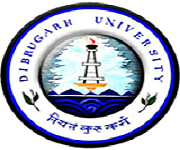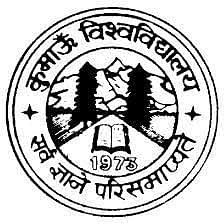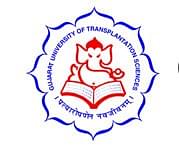Introduction about Ph. D in International Law?
A PhD in International Law at university in India is an advanced academic degree that
allows individuals to delve deeply into the complex and dynamic field of
international law. This program typically equips students with the theoretical
knowledge, analytical skills, and research capabilities necessary to contribute
to the understanding and development of international legal frameworks.
Students pursuing a
PhD in International Law often engage with a diverse range of topics, including
public international law, private international law, human rights law,
international humanitarian law, international trade law, environmental law, and
more. Through rigorous coursework, seminars, and independent research, they
explore the principles, norms, and institutions that govern relations between
states, international organizations, and other actors on the global stage.
Research is a
central component of a PhD in International Law. Students are usually required
to undertake original research projects, culminating in a doctoral
dissertation. This dissertation allows them to make a significant contribution
to the field by addressing novel legal questions, proposing new theoretical
frameworks, or offering practical solutions to pressing global challenges.
Graduates of PhD
programs in International Law often pursue careers in academia, research
institutions, international organizations, government agencies,
non-governmental organizations (NGOs), or legal practice. Their expertise in
international law equips them to address complex legal issues, shape policy
debates, and contribute to the promotion of peace, justice, and human rights
What is admission process for Ph. D in International Law ?
The admission
process for a PhD in International Law at best university in India can vary depending on the university and
country where you're applying, but here's a general overview of what it
typically entails:
Research Programs
and Universities: Start by
researching universities and academic programs that offer PhDs in International
Law. Look for institutions with faculty members who have expertise in your
areas of interest.
Review Admission
Requirements: Each
university will have its own specific requirements for admission. Common
requirements may include a master's degree in law or a related field, strong
academic transcripts, letters of recommendation, a statement of purpose
outlining your research interests and career goals, and standardized test
scores (such as the GRE or TOEFL/IELTS for non-native English speakers).
Contact Potential
Supervisors: It's often
beneficial to reach out to potential academic supervisors whose research aligns
with your interests. Building a relationship with a supervisor beforehand can
strengthen your application and help ensure a good fit for your research.
Prepare Application
Materials: Once you've
identified the universities you're interested in, prepare your application
materials according to their requirements. This typically includes filling out
an online application form, submitting transcripts, letters of recommendation,
a resume or curriculum vitae (CV), a research proposal outlining your intended
research topic and methodology, and any other requested documents.
Standardized Tests: If required, take any necessary
standardized tests (such as the GRE) and ensure your scores are submitted to
the universities you're applying to.
Submit Application: Complete and submit your application by
the specified deadline. Pay close attention to any additional requirements or
supplementary materials requested by the university.
Interview (if
applicable): Some programs
may require an interview as part of the admissions process. If selected, be
prepared to discuss your research interests, academic background, and reasons
for pursuing a PhD in International Law.
Await Decision: After submitting your application, you'll
typically have to wait several weeks to a few months to receive a decision from
the university. If accepted, you may be required to confirm your acceptance and
provide any additional documentation as requested.
Funding: Investigate funding opportunities such as
scholarships, grants, or teaching/research assistantships offered by the
university or external organizations to support your studies.
Prepare for
Enrollment: Once accepted,
prepare for enrollment by arranging housing, obtaining any necessary visas or
permits (if studying abroad), and familiarizing yourself with the resources and
services available to PhD students at the university.
What is eligibility process for Phd in
International Law ?
Eligibility
requirements for a PhD in International Law at top university in India can vary depending on the
university and country where you're applying, but here are some common
criteria:
Educational
Background: Typically,
applicants are required to have a strong academic background, usually with a
relevant master's degree in law (LLM) or a closely related field. Some programs
may accept applicants with a bachelor's degree, especially if they have
significant research or professional experience in the field.
Minimum GPA: Many universities require applicants to
have a minimum grade point average (GPA) in their previous academic studies,
usually around a 3.0 on a 4.0 scale or equivalent.
Language
Proficiency: Since many PhD
programs are conducted in English, non-native English speakers may be required
to demonstrate proficiency in the English language through standardized tests
such as the TOEFL (Test of English as a Foreign Language) or IELTS
(International English Language Testing System).
Research Proposal: Applicants are often required to submit a
research proposal outlining their intended research topic, objectives,
methodology, and potential contributions to the field of international law.
This helps admissions committees assess the applicant's preparedness and
alignment with the program's research focus.
Letters of
Recommendation: Most
programs require applicants to submit letters of recommendation from academic
or professional references who can speak to their academic abilities, research
potential, and suitability for doctoral studies.
Statement of
Purpose: Applicants are
typically asked to provide a statement of purpose or personal statement
explaining their motivation for pursuing a PhD in International Law, their
academic and professional background, research interests, and career goals.
Standardized Tests: Some universities may require applicants
to submit standardized test scores such as the GRE (Graduate Record
Examination), especially if they are applying to programs in countries where
the GRE is commonly used for admissions.
Interview (if
applicable): In some cases,
applicants may be invited to participate in an interview as part of the
admissions process. This allows the admissions committee to further assess the
applicant's qualifications, research interests, and fit for the program.
It's important to
carefully review the specific eligibility requirements of each program you're
interested in and ensure that you meet all criteria before applying.
Additionally, reaching out to program coordinators or admissions offices for
clarification or guidance can be helpful in navigating the application process.
What is syllabus for Ph. D in International Law ?
The syllabus for a
PhD in International Law can vary significantly depending on the university,
the specific program, and the research interests of the student. However,
here's a general outline of topics that may be covered in a PhD program in
International Law:
Foundational
Courses:
Introduction to
International Law
Principles of
Public International Law
Principles of
Private International Law
Legal Research
Methods and Writing
Advanced Courses:
International Human
Rights Law
International
Criminal Law
International
Environmental Law
International
Economic Law and Trade Law
International
Humanitarian Law
International
Organizations and Institutions
Regional Systems of
International Law (e.g., European Union Law, African Union Law)
Specialized Topics:
Emerging Issues in
International Law (e.g., cyber law, space law)
Law of the Sea
Indigenous Peoples'
Rights
Refugee and Asylum
Law
International
Investment Law
International
Dispute Settlement
Comparative
International Law
Seminar Courses:
Advanced Topics in
International Law (e.g., war crimes, state sovereignty)
Current
Developments in International Law
Research Seminars:
where students present their ongoing research and receive feedback from faculty
and peers
Elective Courses:
Depending on the
program, students may have the opportunity to take elective courses to tailor
their studies to their specific research interests. These could include courses
in related fields such as political science, sociology, economics, or history.
Research Component:
Throughout the
program, students will engage in independent research under the supervision of
faculty members. This research culminates in the completion of a doctoral
dissertation, which typically makes an original contribution to the field of
international law.
Language
Requirements:
Some programs may
have language requirements, particularly if research involves studying legal
documents or conducting research in languages other than English.
Practical
Experience:
Some programs may
offer opportunities for students to gain practical experience through
internships, externships, or research assistantships with faculty members or
research centers.
It's important to
note that this is a general outline, and specific courses and requirements may
vary depending on the university and program. Prospective students should
carefully review the curriculum and requirements of each program they're
interested in to ensure it aligns with their academic and research goals in
international law.













